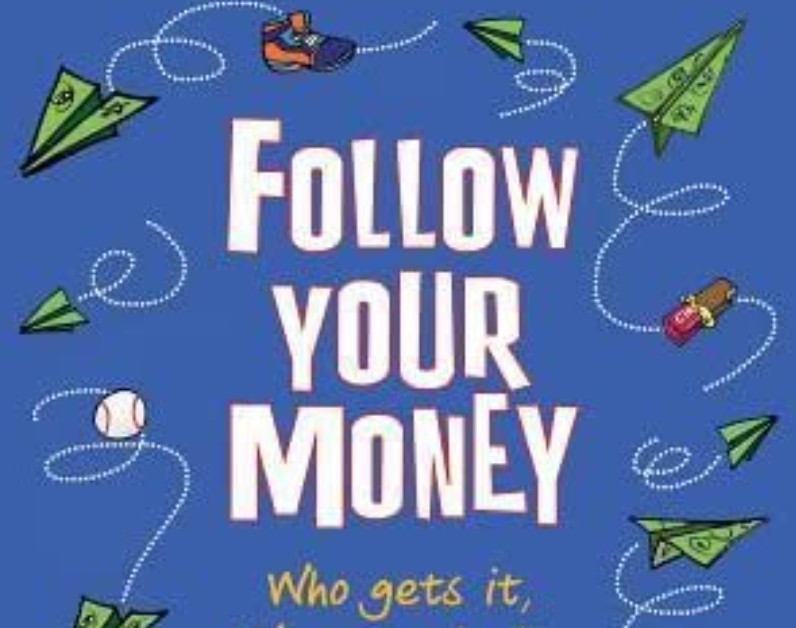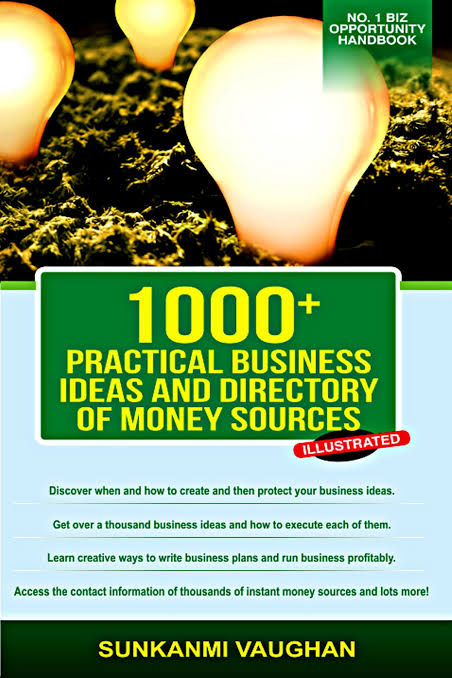What is Shares and Dividends Tracing Service?

Shares and dividends tracing service is a professional service offered by a licensed Chartered Stockbroker to help you trace and reclaim all outstanding shares and dividends meant for you directly and/or as proceed from the shares and dividends transferred to you by your living or deceased relative(s).
There are some steps in this process that you can handle and do by yourself directly but it is more likely to take you much longer time and stress even after using the free verification portal and frequent physical visits to the office of registrars and probate registry.
How can unclaimed shares be traced?
To trace down and recover lost shares, the primary step is to contact the company’s share registrar, in cases where the corporate name is recognized and known. To know the name of the company and registrars, you can use the free portal of SEC directly or get the services of a Chartered Stockbroker to help you trace your unclaimed shares.
What is the distinction between shares and dividends?
Shares and dividends are closely related; shares are proof of possession or part ownership of an enterprise, just like an organization or cooperative venture, while dividends are payments created by the organization to people who own shares, or are shareholders of the organisation .
What is the difference between shares and stocks?
Stocks is the term exclusively used for shares of companies listed on the stock exchange and traded as equities and securities on the stock exchange .
When you buy shares from ,say 10 different companies listed on the stock exchange, you then say you hold 10 stocks as each of the corporate equity represent a stock. You’re equally a stockholder in each of the 10 companies trading its shares on the stock exchange.
However, you can hold shares in companies, mutual funds etc that have not listed their shares on the stock exchange and you therefore can not trade the shares of those companies on the stock exchange. If you have shares in Vaughan Capital Limited but the company has not registered itself on the stock exchange to enable those who hold shares in the company trade its shares , you cannot call the shares of Vaughan Capital Limited stocks yet. So you have the shares, not the stocks of Vaughan Capital Limited. You are therefore a shareholder, not a stockholder. However, the moment Vaughan Capital Limited list its shares on the stock exchange and becomes tradeable, its shares that you hold now automatically becomes a single stock.
Stockholders and Shareholders are entitled to dividends. A company currently on the stock exchange may choose to delist itself from the stock exchange and its shares will no longer be traded on the stock exchange so holders of its stocks revert to become shareholders and not stockholder anymore.
In your portfolio of investments , you can have shares and stocks so same individual or organisation can be a shareholder as well as stockholder.
What is the meaning of share and dividend?
Shares are units of equity possession interest in an organization that exist as a monetary asset providing for an equal distribution in any residual profits, just Incase any profit is declared, in the form of dividends.
Shareholders might also relish capital gains if the worth of the corporation rises.
How do I claim unclaimed dividends on shares?
This is also known as Unclaimed dividend retrieval process.
To claim deserted dividend within seven years from the declaration, you’ve got to contact the various fund house or the Registrar & Transfer Agent of the involved fund house and supply them with the folio details, bank account number and (Know Your Customer) KYC proofs.
How do I trace old shares?
How to track my shares?
Tracing of old shares with listed companies on Stock Exchange, for example, requires you to get in touch with a Chartered Stockbroker who, on your behalf, will do a global search through the Central Securities Clearing System( CSCS).
From the result of the global search provided by CSCS, you will confirm all the companies and quanties of stock of each company in your portfolio that you have.
If there are outstanding dividends as well, your stockbroker will help you with an e-dividend mandate form you will fill, sign and take to your bank.
Your bank will confirm your signature, stamp and upload your completed e-dividend mandate form to a central portal and if you have no KYC issues, the bank account you supplied in your e-mandate form will be electronically credited with the cash equivalent of your outstanding shares.
Please note that the e-mandate form will be done for each company especially if the outstanding dividends are in the custody of different registrars.
How do I verify online deceased relative have outstanding dividends or shares?
There is a free service by the Securities and Exchange Commission (SEC).It is simple and free to use. Just search for your full name or the full name of your deceased relative(s) on the Securities and Exchange Commission (SEC) unclaimed dividends portal.
List out all the registrars which appear on your search result page and follow up with a call or send email to the registrars directly or go through a chartered stockbroker.
What is SEC (Securities and Exchange Commission)?
SEC is the government agency that regulates the capital market.
You can call them directly or send email to report any capital market operator or registrar or publicly quoted company that is giving you trouble.
The Securities and Exchange Commission (SEC) Investors Relations direct phone number is (+234) 094621168 and their email addresses for receiving complaint are [email protected] and [email protected]
How do I recover lost shares?
If you need to get back lost shares, you need to have transfer shares of an original stockholder after death, transfer of physical shares, Issue duplicate share, claimed shares from IEPF, claimed dividend from IEPF, Followed up with Registrar and Transfer Agent (RTA) for transfer of shares.
How do I recover the shares and dividends of my dead relative?
It depends on how soon it takes to get the letter of administration from the state Probate Registry.
In takes a while to transfer the shares of a deceased relative to another person regarded as the beneficiary.
If you’re the beneficiary of a dead person’s shares and dividends and desire to reclaim the shares and dividends , before and after after you have traced these assets, you need the services of a Chartered Stockbroker.
The stockbroker will request you to get letter of administration before you can proceed.
At the Probate Registry, you will be given a form to fill and submit with all the supporting documents which will include the death certificate of the deceased.
When all the information you provided on the form have gone through various official checks and no discrepancy detected and/or caveat filed against it when published publicly, the Probate Registry will issue you an official letter of administration.
How long does it take to transfer shares and dividends of my dead relative to me?
The Registry typically takes three months or longer to treat the form and issue a letter of administration to you after which your stockbroker proceeds to the final leg of your tracing and reclaiming all the outstanding dividends and shares owned by your deceased relative. This final leg can be completed within 2-4 weeks.
The Letter of administration is officially granted upon application by you, a living person, entitled either personally or represented by your legal practitioner to the Probate registrar.
Final issuance of letters of administration( for example, in Lagos) would not be made within three (3) months from the death of the testator where he died intestate and every application for grant of letters of administration is usually published publicly to enable members of the public see it and raise objections and file caveats when necessary.
Do all shares pay dividends?
Profits made are restricted by the shares. Firms usually distribute the profit as dividend to their shareholders in the form of money which is the payment of dividends.
Dividends are issued to all shareholders whose shares give dividend rights, that most do.
Sometimes, profits are reinvested to conserve funds but investors are rewarded with bonus shares instead so that their number of shares increase and in the future when dividend is paid, you earn dividend pari passu on both your original shares and the bonus shares.
For example if you have 10,000 shares and your bonus shares is 5000, you now have a total of 15000 shares and earn dividend from each of the 15000 shares.
Is dividend paid on face worth or market worth?
The dividend is usually declared by the corporation on the face value (FV) of a share no matter its market price.
The rate of dividend is given as the ratio of percentage of the face value of a share per annum.
What happens to unpaid dividends?
In an organization where a dividend has not been paid or claimed within 30 days of declaration then the unclaimed or unpaid balance is transferred to a spectacular account which is opened by the organization in a regular bank .
The bank account is known as the ‘Unclaimed Dividend Account’. In reality, it is the registrars that manage all unclaimed or outstanding dividends.
What happens to dividend checks that are not cashed?
If you don’t cash dividend checks, those checks and related stock could be escheated except you have contacted the transfer agency.
Since some shareholders sell their shares immediately after the close of register, they will lose out on any market gains, dividends or stock splits that occur after the shares have been sold-out.
Issuance of checks for dividend payout is being gradually phased out as their is now electronic payment that credits your bank account directly.
E-Dividend Mandate Form
This form enables the registrar to credit your bank account with your dividends directly.
In some countries, the Federal Government through a proposed or existing law can vest unclaimed dividends on the government through the transfer of dividends that have remained unclaimed for a period of 12 years from Unclaimed Dividend Trust Fund ( UDTF) to the government account as federation revenue.
How long will you need to hold shares to receive a dividend?
To be entitled to a dividend, a stockholder ought to have purchased the shares before the ex-dividend date. If you buy the shares on or after that date, the former owner of the shares will be entitled to the dividend.
Are you compelled to pay a dividend to all shareholders?
A dividend is a payment an organization will make to shareholders if it has created a profit.
You ought to pay dividends to all shareholders. To pay a dividend, the organization ought to hold a directors meeting to declare the dividend.
Do dividends get paid monthly?
Income stocks sometimes pay stockholders quarterly, however these firms pay every month.
That made monthly dividend stocks so appealing. These financial gain investments provide distributions every 30 days rather than the typical cycle of once per quarter.
However, most of the listed companies pay dividends once or twice in a year.
Only few listed companies, mostly in the top tier category of publicly-quoted banks, pay dividend twice a year ; interim dividend is first paid at mid-year and final dividend paid at financial year end.
The total dividend paid that financial years is the sum of the amount paid for interim and final dividend. For example, if the company pays N25 for interim and N50 for final dividend, total dividend for that financial year sums up to N70.
Can you live off of dividends?
You can live off dividends in retirement, however you must to either begun investing early or opt in for safe, high-yield stocks that will cover your cost of living throughout your lifetime.
Why should you trace and reclaim your shares and dividends?
The longer you delay starting the process of tracing and reclaiming your outstanding dividends and shares, the more difficult it becomes because new policies are introduced regularly and you will still need to go through the KYC check afresh.
In some cases where you have relocated or changed names , you will require new processes or official documents including biometrics to prove that you’re the same person who owns those the outstanding dividends and shares and rightfully entitled to them.
Shares and dividends are your assets and tracing to reclaim your shares and dividends are reasonable steps required to manage your asset and know your current worth.
This can improve your credit rating especially when you seek loans or need to show means to support yourself in a foreign country at the point of application for their visa.
If the law that vests unclaimed dividends to the federal revenue account takes off, to reclaim your unclaimed dividends will require new bureaucratic process including writing to the Accountant-General of the Federation and obtain approval of the Minister of Finance of your request to reclaim your unclaimed dividends.
As noted in reality, the more you delay and postpone the tracing of your shares and dividends, the amount you will pay keep increasing and the stress of the official proceeds remain daunting.
When should I commence the tracing of my shares and dividends?
The best time to start is now. Utilize the free SEC portal to check and confirm if you have outstanding dividends and shares then get the name of the registrar and follow up with the registrar or get in touch with a credible and experienced stockbroker now.
How To Get Shares and dividend tracing service For Free
This highly credible and experienced chartered stockbroker/licensed Dealing Clerk on the floor of Stock Exchange offer highly discounted professional service to help you with the professional guidance you need to reclaim your unclaimed dividends, recover your shares, demutualize paper share certificate and handle all your estate account for your deceased relative(s).
Also: Claim this Free Business Ideas Book now!



